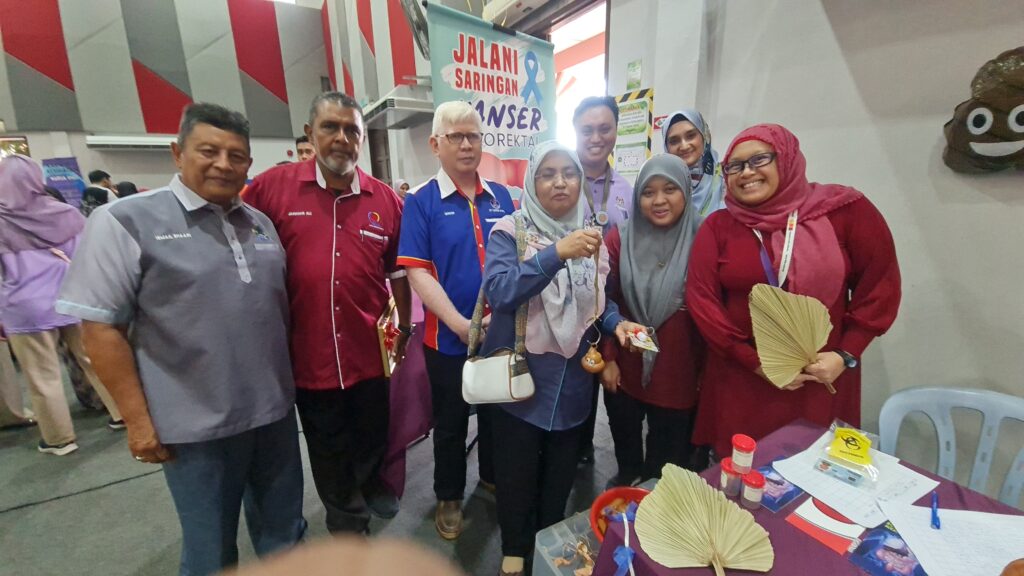There’s no knowing when Madam Tang will go berserk. During these flare-ups, Tang will knock her head on the wall or beat her chest.
Family members do not know why the matriarch of the house is acting so irrationally. But her waning memory and behavioural changes are signs that things are not right.
“My mother may have dementia,” says civil engineer L. Kweensi, 57, of his 80-year-old mother. Within the span of a few years, the gentle and mild mannered mother of six had turned into a monster of sorts.
“She is a completely different person now. She’s nasty, abusive, violent and accusational. Her anger outbursts come suddenly without warning,” says Kweensi, who has a close relationship with his mother.
Kweensi took up a job posting in Brunei recently, and he is worried about how his wife, two children and a maid in Kuala Lumpur, are going to cope with his mother in his absence.
“Her horrible temper and foul mouth are driving us crazy. She’s aggressive and scolds everyone around her. Whenever she comes to live with my family, she abuses us. She threatens to kill herself for being old and useless. She mumbles to herself and grumbles all the time. She kicks our pet poodle and accuses my wife of all sorts of things. If we say anything, it will only aggravate the situation. We are on the verge of a nervous breakdown,” says Kweensi.
“My two sisters in Singapore take turns to look after her when she is there. They, too, complained that Mum abuses their family members.”
Kweensi and his siblings have been tolerating their mother’s aggressive behaviour, and now they are at their wits’ end on how to care for her.
Tang has refused to see a doctor to diagnose her problem. The only way to get her to the clinic is to tell her that it is for her flu. She was referred to a specialist in a government clinic in Kuala Lumpur, but missed a few appointments as she shuttled between Kuala Lumpur, Malacca and Singapore, to be cared for by her children.
Five years ago, the family noticed personality changes in Tang. She did not want to cook and lazed around the house. She talked to herself while watching television.
“She was a loving mother and got along very well with my wife. She helped out with household chores, and loved to cook the family’s favourite dishes. Nowadays, she complains that she has no energy left for chores. But she has the time and energy to walk around the neighbourhood under the hot afternoon sun,” says Kweensi.
“She repeats herself all the time. She is forgetful and cannot remember what she has done and where she left her house keys, watch and spectacles. She forgets to take her medication for cholesterol and a thyroid problem.”
Tang has two younger sisters but they keep away from her because she loves to dig up old grievances and settle old scores.
“Sometimes my mum forgets who her sisters are. But most of the time, she can remember people after a short introduction,” explains Kweensi.
Aggressive behaviour is a known symptom of dementia, and living with an elderly family member with behavioural problems can be stressful for everyone at home.
Prof Dr Philip George, a consultant psychiatrist and president of the Malaysian Healthy Ageing Society, stresses the importance of having the patient fully assessed by a professional.
“Caregivers can then come to terms with the condition and understand that the patient is not feigning it. The difficult behaviour is a part of their illness,” explains Dr Philip.
“Dementia is a global brain disorder; all parts of the mind are affected. But there are treatments that can help in modulating thoughts and behaviours in the elderly with dementia. This needs to be discussed with a psychiatrist or geriatrician.
“Patients with dementia can become aggressive. Often this is due to acute frustration. They are ruled by emotions rather than logic. Challenging them creates more anger and sometimes they respond with threats,” says Dr Philip.
“Dementia is a major healthcare concern which affects about 24 million people worldwide. Studies show that 25% to 50% of people with dementia develop depression. Hence recognising the symptoms of depression in dementia is very important as depression increases the risk of suicide. Depression can be treated with medication or counselling,” adds Dr Philip.
Published on The Star ; Original Article HERE






